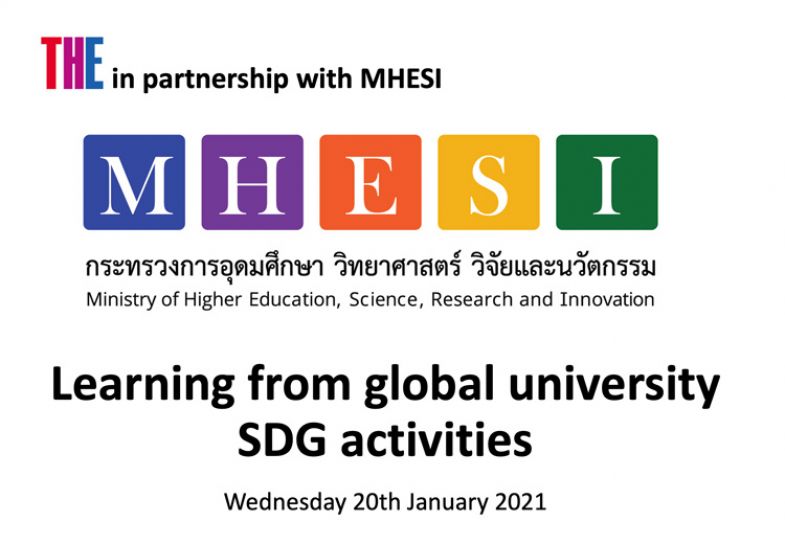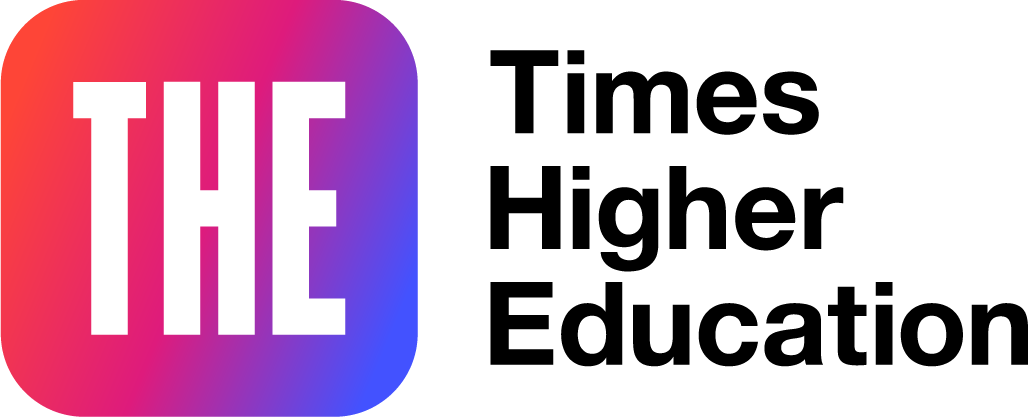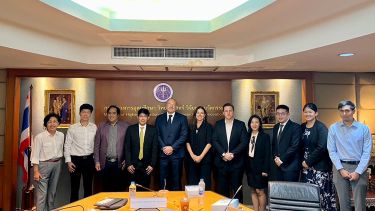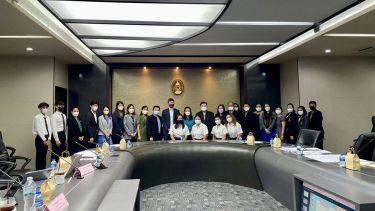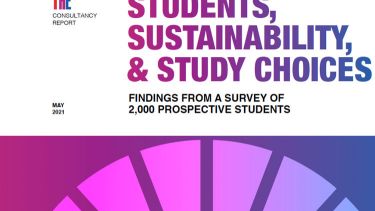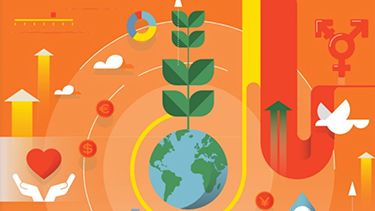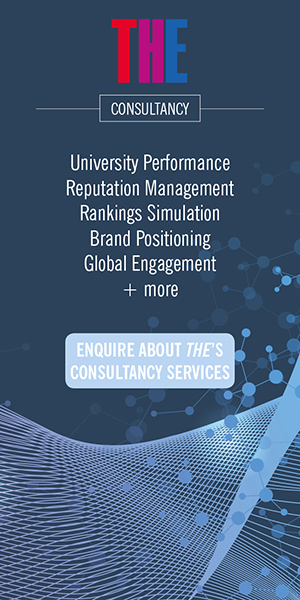Using the United Nations’ Sustainable Development Goals as a framework, universities can better understand the social challenges they must help tackle – and how to implement change
The United Nations’ Sustainable Development Goals (SDGs) are a call to action on the world’s most pressing challenges. Universities have a critical role to play in achieving the SDGs, using their research, teaching, public engagement and campus operations to facilitate progress.
On behalf of Thailand’s Ministry of Higher Education, Science, Research and Innovation (MHESI), Times Higher Education’s Consultancy team is embarking on a long-term engagement with 35 Thai universities to help identify and track their activities that contribute to the SDGs. The work will help identify areas where MHESI can better support these universities in their activities.
In a webinar hosted by THE Consultancy on 20 January 2021, the panel shared experiences of how their universities have demonstrated a commitment to achieving the SDGs. The panel comprised: Leonard Cheng, president of Lingnan University, Hong Kong; Pamela Moss, director of planning at the University of Auckland; Tania Rhodes-Taylor, vice-principal of external relations at the University of Sydney; and Álvaro Barbosa, vice-rector for internationalisation and strategic development at the University of Saint Joseph, Macao.
A framework to communicate real-world impact
One of the themes to emerge from the session was how the SDGs have acted as a useful framework for these universities to articulate what they are doing to tackle big societal challenges. Rhodes-Taylor explained that the wider public generally has a limited understanding of what universities do beyond “being a big school” but that the SDGs are more widely understood, giving universities “an ability to talk about our impact in a way that broader society, and governments, can understand”.
The work of universities in tackling big societal challenges can also increase the appeal of a university to prospective students. In recruiting new students Professor Barbosa explained: “Every time we go to international recruitment fairs, the first question students ask is, ‘where does your university rank in the league tables?’” With this in mind, the THE Impact Rankings offer a dual opportunity for the University of Saint Joseph: a chance to appear in an international ranking, but also to demonstrate what the university is doing in relation to the SDGs and to showcase this work.
A motivating factor for students and academics
The focus on SDGs by governments and funding agencies has also encouraged universities to assess their impact on local communities. Professor Cheng explained that in 2018 Lingnan University launched the Lingnan Entrepreneurship Initiative, which is the first liberal arts collaborative innovation and entrepreneurship programme in Hong Kong. It has encouraged both students and academic staff to deliver real-world impact in their local community.
Examples provided by Professor Cheng include Lingnan students designing, making and disseminating transparent face masks to assist communication with students with hearing impairments, as well as developing low-cost air purifiers that are accessible to families living in subdivided units (a form of housing environment for the urban poor of Hong Kong).
Sharing the University of Auckland’s experience, Moss explained how the process of internally reviewing the university and its researchers’ contributions to the SDGs ‒ both for its annual sustainability report and to prepare their submission to the THE Impact Rankings ‒ has been a motivating factor for academic staff. Moss said: “We are using the SDGs as a way for academic staff to identify how their research and their activities are making a contribution to the goals. This is something that staff are very motivated by and they have found [the THE Impact Rankings] to be an appealing ranking and are therefore far more willing to participate in the work that goes into our submission.”
This webinar was the launch event for THE Consultancy’s work with MHESI and the 35 Thai university partners, and it was great to hear examples of how universities are supporting the SDGs. We are very excited about the potential for this project and will post more updates as the work progresses.
Contact the Times Higher Education Consultancy team for more information about how it provides strategic, data-driven guidance to universities and governments globally.
